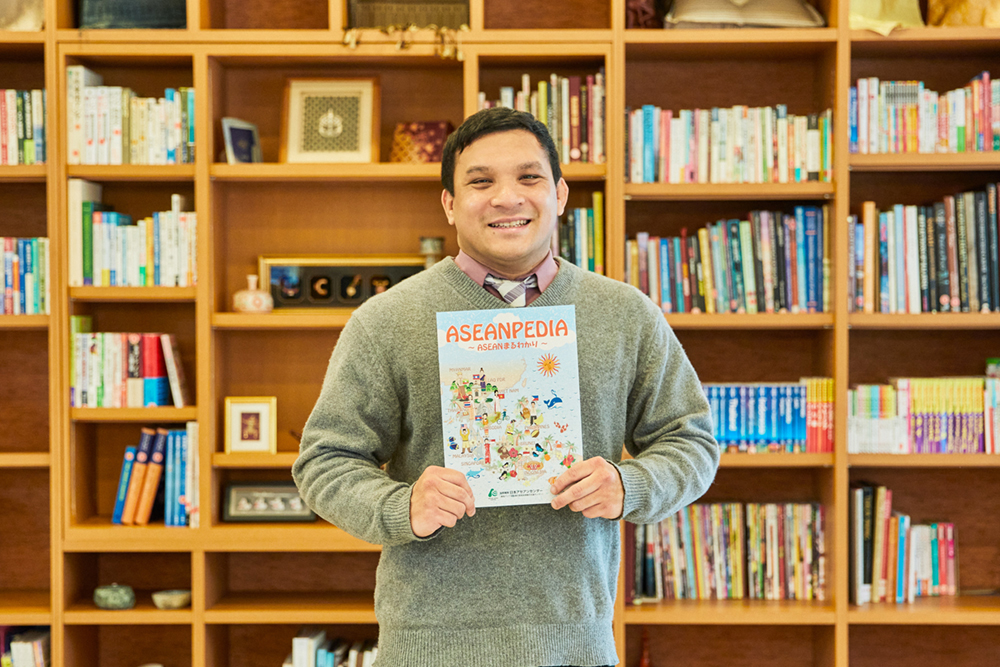Erjo Coscolluela, a native of the Philippines, was the managing director of the Japan Chapter of the ASEAN Youth Organization. Until March 2023, he was teaching English at a combined junior high and high school in Tokyo. What is the motivation behind Erjo’s unwavering commitment to education and mutual understanding among ASEAN countries? (This interview was conducted when he was still teaching in Tokyo.)
Education and Cultural Heritage of Asian countries – this is my life work
– What activities were you engaged in as the managing director of the Japan Chapter of the ASEAN Youth Organization?
The ASEAN Youth Organization was established in 2013. However, the Japan Chapter didn’t launch until 2021. That year, we conducted three pilot projects. The most recent webinar on the topic of Food Sustainability during the Covid-19 Pandemic was the largest and most successful with over 100 participants.
This seminar allowed participants the opportunity to think about sustainable food issues in ASEAN with various speakers, including a woman from an NPO working on environmental and social issues in Japan, the founder of a food rescue organization in the Philippines, a researcher on rural development in Southeast Asia, and a woman operating an agricultural experience program in Thailand.
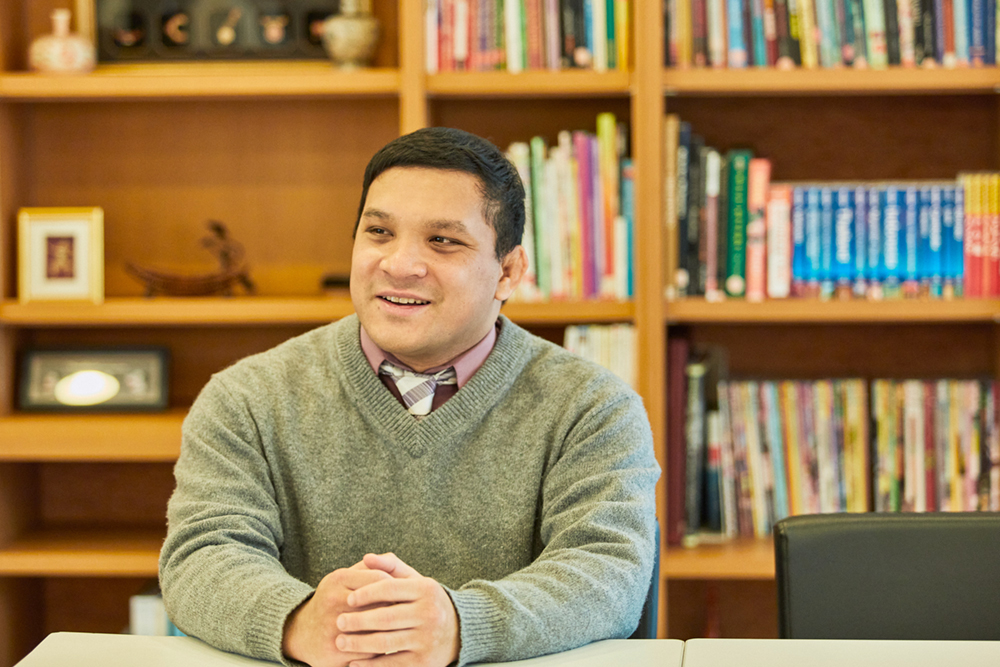
– What inspired you to become an English teacher in Japan?
Originally, I was interested in education and Asian culture and history, and my research interest during my master’s program was Sustainable Cultural Heritage. I’ve also taught basic Japanese at a university in the Philippines. Moreover, I have some interesting experiences teaching Korean culture and history in English to Korean students in South Korea (laugh).
When I heard that Japan’s JET programme (The Japan Exchange and Teaching Programme) was looking for foreign teachers to help Japanese children in broadening their global perspectives and deepening their understanding of different cultures, I thought it was the right choice for me to utilize my accumulated career experience.
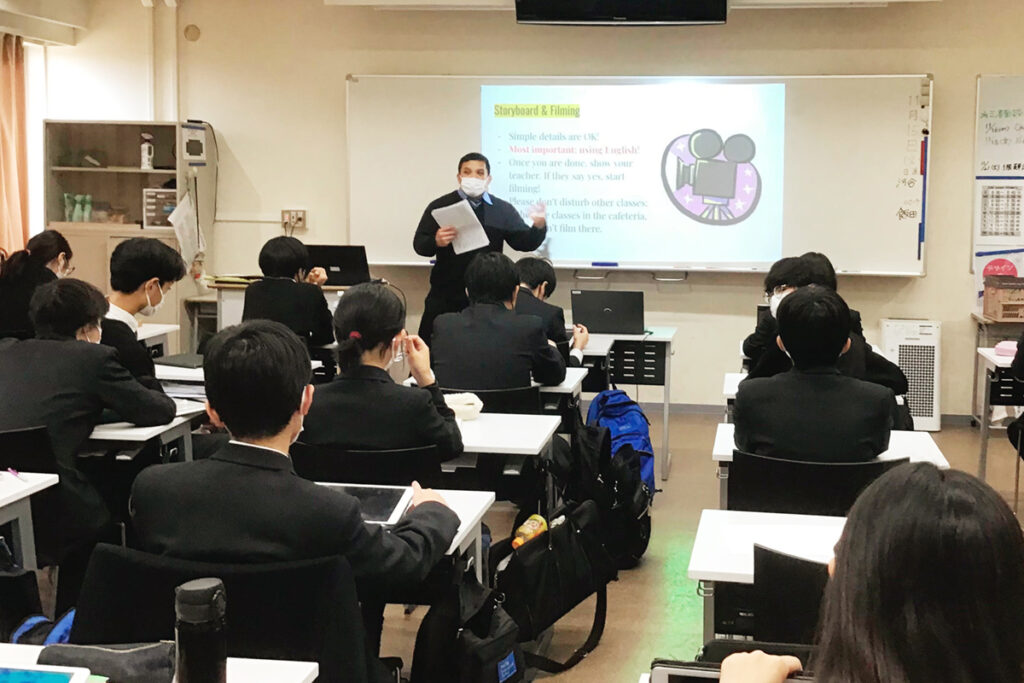
“I thrive on making my students feel comfortable speaking English.”
Only beaches and bananas come to mind!?
I want them to deeply know the countries of Southeast Asia
– What are your impressions of Japanese junior high and high school students?
Shyness prevents Japanese students from speaking English. As an English teacher, this is a very challenging situation. Furthermore, when I first came to Japan, I discovered that the Japanese knew many things about Western powers, but not so much about Asian countries around Japan. When I started teaching about ASEAN, the only things that came to mind for them were beaches and bananas.
I want them to broaden their perspectives on the entire world. They should become more interested in the people and cultures of ASEAN close to Japan, instead of looking only at Western countries. It would be wonderful if they were more aware of diverse cultures.
– What kind of classes do you provide at your school?
I am in charge of teaching project-based English. It is about applying what students have learned in English to a project. They set up a model United Nations, for example. I assigned the project of researching ASEAN and making presentations in English to first-year junior high school students. They researched the country their team chose and produced dioramas and presentation boards. They then organized an exhibition presentation with English commentary for attendees. The activities helped them acquire the ability to read, write, listen, and speak English in a natural manner.
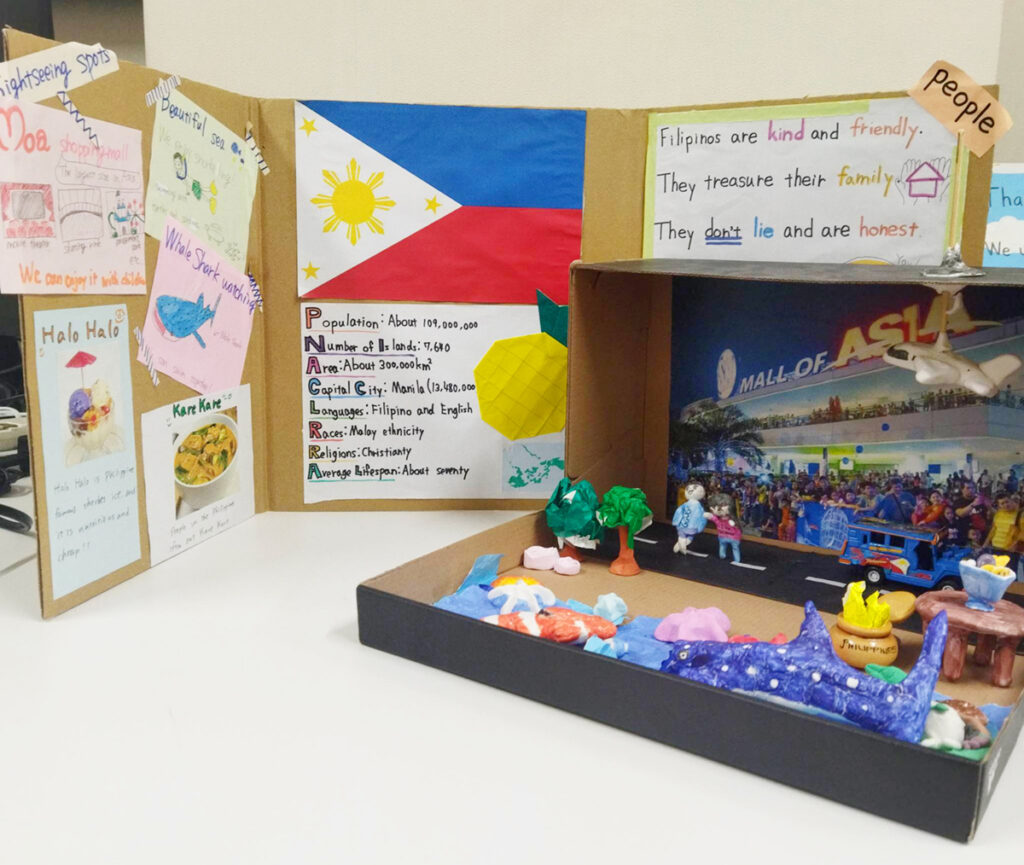
– Did you see any changes in the students during the project?
A growing number of students have expressed an interest in visiting or learning about ASEAN countries. One of the groups researching Cambodia actually had one of their members visit a Cambodian restaurant in Tokyo, eating curry and dessert, to learn about Cambodian food. I was very glad to see them use that experience in their presentations.
Also, in a project collecting donations for a Cambodian NGO promoting education, the students got the opportunity to speak with a Cambodian international student to obtain prior knowledge before interacting with NGO members via ZOOM. So, I arranged an online class where they interviewed an international student and other people from the ASEAN with the cooperation of the ASEAN-Japan Centre.
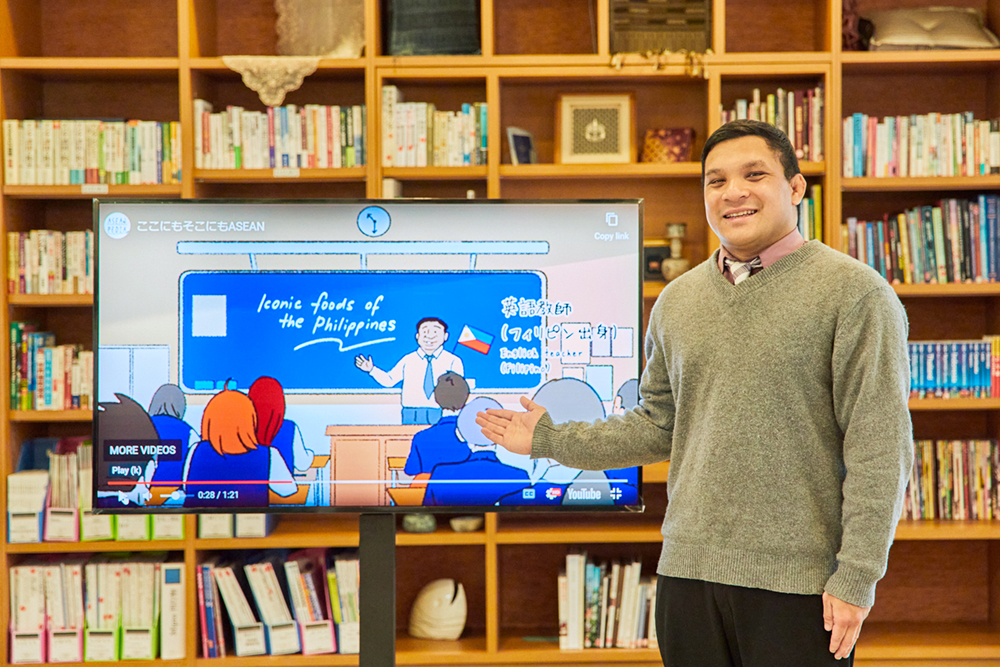
Time shared with Japanese students is an asset.
I want to connect this experience to my next activity.
– What are your prospects for the future?
Looking at the content created by students at school, I can see that they approached ASEAN countries with a strong interest. The experience of bringing my work to fruition is my asset. I intend to carry out activities that make a big impact on the world through the assets I have received from my students.
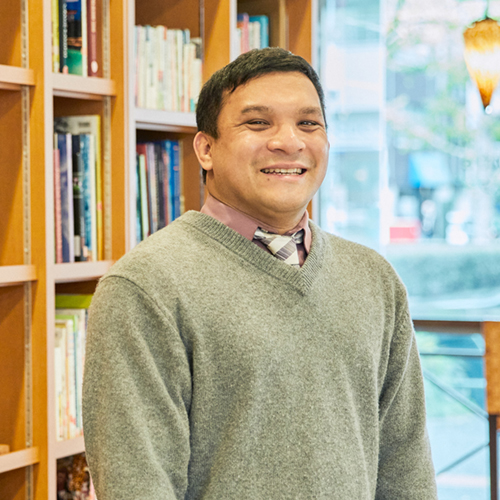
Erjo Coscolluela
Originally from Baguio, Philippines. Erjo had spent a year in Nagasaki Prefecture, Japan as an exchange student. After graduating from university with a bachelor’s degree in Mass Communication, he completed a master’s degree in international relations from Sogang University in South Korea. He was Vice Chairman of ASEAN Youth Network in South Korea (2018-2019) and Managing Director of ASEAN Youth Organization Japan Chapter (2021), working on skills and capacity development projects for youth. In addition, under the JET program (a foreign youth invitation program that provides language instruction, etc.), he has been dispatched to a private junior and senior high school in Tokyo since 2019 and is working as an English teacher in international education.
Interview and text: Wakako Kurimoto
Photo: Hiyori Ikai, Photo courtesy (local photo): Erjo Coscolluela


